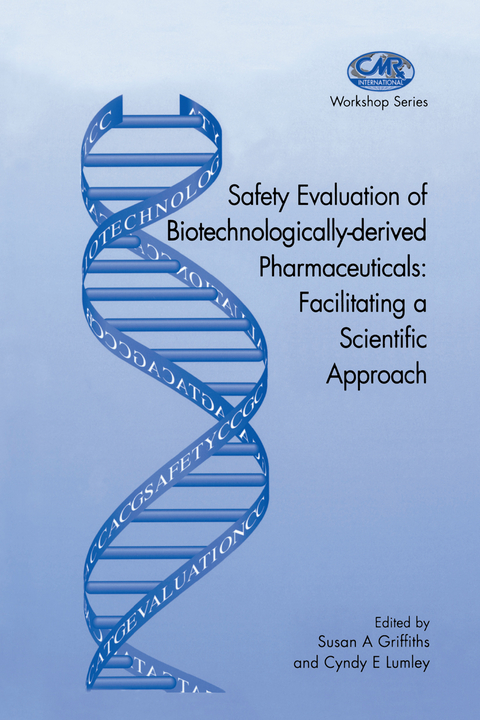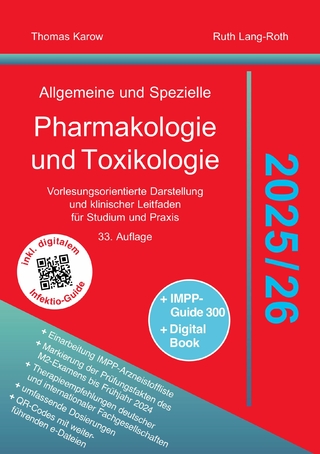
Safety Evaluation of Biotechnologically-derived Pharmaceuticals
Springer (Verlag)
978-0-7923-8732-9 (ISBN)
Considerable investment has been made by both pharmaceutical and biotechnology companies in pharmaceutical products of biotechnology. However, because relatively few of these products have been marketed, lack of relevant experience means that uncertainty still surrounds the most appropriate strategy for their safety evaluation. The 13th CMR International Workshop, held in February 1997, provided the opportunity for regulatory authority and industry experts from Europe, Japan and the USA to share their experiences of designing safety evaluation programmes for specific product classes: colony stimulating factors, growth factors, hormones, interferons, interleukins, monoclonal antibodies for therapeutic use, and gene therapy products. Participants worked together to recommend those studies that should be considered for such safety evaluation, and those that may be unnecessary. These recommendations subsequently made a valuable contribution to the ICH guideline `Safety Studies for Biotechnological Products', which was finalised at ICH 4 in Brussels in July 1997. The Workshop proceedings not only describe the recommendations but also provide the reader with an appreciation of the science behind safety evaluation strategies used by experts, the influence of different regulatory systems on these strategies, and the type of data required by both toxicologists and clinicians before they have sufficient confidence to administer pharmaceutical products of biotechnology to humans.
1 Designing non-clinical safety evaluation programmes: The view of the clinician.- 2 Designing non-clinical safety evaluation programmes: The view of the toxicologist.- 3 Company strategies for designing non-clinical safety evaluation programmes: Results of a CMR International survey.- 4 Influence of regulatory systems: A viewpoint of the US FDA process.- 5 Influence of regulatory systems: The European CPMP perspective.- 6 Biotechnologically-derived pharmaceuticals in Japan: Present and future prospects.- 7 Designing non-clinical safety evaluation programmes for colony stimulating factors, growth factors and hormones: A personal view.- 8 Designing non-clinical safety evaluation programmes for interferons and interleukins: A personal view.- 9 Designing non-clinical safety evaluation programmes for monoclonal antibodies for therapeutic use: A personal view.- 10 Designing non-clinical safety evaluation programmes for gene therapy products: A personal view.- 11 Recommendations and the way forward.- 12 Designing non-clinical safety evaluation programmes for colony stimulating factors, growth factors and hormones: Recommendations and the way forward.- 13 Designing non-clinical safety evaluation programmes for interferons and interleukins: Past experiences and recommendations for future products.- 14 Designing non-clinical safety evaluation programmes for monoclonal antibodies: Recommendations and the way forward.- 15 Designing a safety evaluation programme for gene therapy products: Recommendations and the way forward.- Appendix I: Preclinical Safety Evaluation of Biotechnology-Derived Pharmaceuticals: ICH Step 4 Harmonised Tripartite Guideline.- Appendix II: List of Participants.
| Reihe/Serie | Centre for Medicines Research Workshop |
|---|---|
| Zusatzinfo | XVIII, 200 p. |
| Verlagsort | Dordrecht |
| Sprache | englisch |
| Maße | 170 x 244 mm |
| Themenwelt | Medizin / Pharmazie ► Medizinische Fachgebiete ► Pharmakologie / Pharmakotherapie |
| Medizin / Pharmazie ► Pharmazie | |
| Studium ► 2. Studienabschnitt (Klinik) ► Pharmakologie / Toxikologie | |
| Studium ► Querschnittsbereiche ► Prävention / Gesundheitsförderung | |
| Recht / Steuern ► Privatrecht / Bürgerliches Recht ► Medizinrecht | |
| ISBN-10 | 0-7923-8732-5 / 0792387325 |
| ISBN-13 | 978-0-7923-8732-9 / 9780792387329 |
| Zustand | Neuware |
| Informationen gemäß Produktsicherheitsverordnung (GPSR) | |
| Haben Sie eine Frage zum Produkt? |
aus dem Bereich


